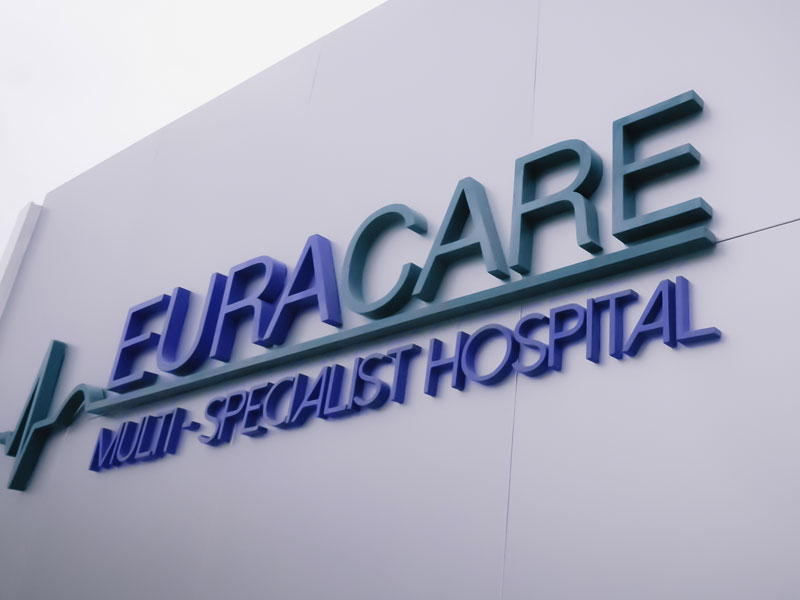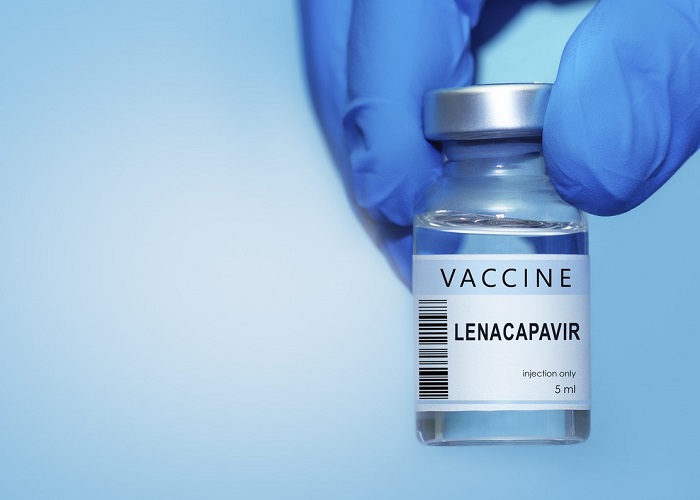Health
How to Take Control of Your Health and Well-being With Small, Easy Steps

It’s the middle of the rainy season, so colds and flu are in full swing, and with people starting to not wear masks while out in public, we could potentially be exposed to more germs than we would be if everyone were wearing masks. If there was ever a time to take control of your health, it would be now. And there are various ways to do that just by making small changes in your life and home.
Don’t forget the dust traps
There are many spaces in your home that are massive dust traps and prime spots for germs to breed in. You might not want to think about it, but your sheets, pillows and PJs can be full of dead skin cells, unwanted germs, and tiny dust mites that increase your risk of suffering from allergies, hay fever, and asthma. If anyone in your family suffers from hayfever or allergies, try to keep your house as dust-free as possible, advises Awazi Angbalaga, Country Manager of home-cleaning service, SweepSouth Nigeria.
Carpets and rugs attract a lot of dust and dirt, so be sure to clean these regularly. Even air pollutants like pollen, fungi and cigarette smoke get trapped in carpet fibres and can trigger allergies and eczema attacks, so vacuum carpets and rugs at least twice a week, and more in high traffic areas. Consider hiring a service like SweepSouth, which will provide a home cleaner to help tackle hard-to-reach areas, like under couches, behind fridges, and the top of curtain pelmets. Angbalaga suggests that a good cleaning tip is to set a vacuum cleaner on a low setting to give curtains a quick once over to remove dust, while a clothes steamer can be used on curtains to refresh them.
Eat seasonal vegetables
Fruits and vegetables that are stored for a long period of time while being transported lose high amounts of nutritional value. This is why eating in-season fruits and vegetables are better for your health.
Chef Norman Heath of Radisson Blu Hotel Waterfront agrees: “In-season fresh produce is nutrient dense and it also tastes better than anything that gets imported. Not only that, but it’s better for the environment, too, which works out better for everyone’s health in the long run.
“And, you will be supporting local farms, local markets and local employment, all with this one choice to buy in-season,” he adds.
Breathe it out
Meditation and deep breathing are something everyone can easily implement for their health. It reduces stress which, in turn, has endless benefits for your overall health. Stress suppresses your immune system and increases blood pressure, among other things.
Calm your mind by deep breathing, with longer exhales than inhales for a few minutes. Follow it by focusing on relaxing every part of your body, releasing tension as you go. You can do this whenever you’re feeling stressed, but it’s also a highly effective way to help you fall asleep at night.
Invest in a good mattress
Getting a good night’s rest should be high on our agenda for a healthy lifestyle, and an important part of achieving this is having a comfortable mattress. A good mattress supports your whole body as you sleep, keeping your spine in a neutral position You wouldn’t run a race without the right shoes, or climb a mountain without the correct gear, yet despite the fact that we spend up to a third of the day sleeping, we often don’t consider how an old mattress, or one that isn’t offering adequate support, is affecting our quality of sleep.
With so many different types of beds to choose from, do research when choosing the bed that’s right for you. If you suffer from back pain or allergies, for example, a foam or latex mattress might be your best bet, or perhaps a soft mattress doesn’t give you the adequate support, in which case a medium-to-firm mattress would be more comfortable.
Check your family’s medical history
Maintain and protect your health in the long run by finding out if any serious health conditions run in your family. An especially important one to know is whether there is a history of blood clots, says Dr Helen Okoye of the World Thrombosis Day Steering Committee. Worldwide, more people succumb to the life-threatening conditions caused by thrombosis, the formation of a blood clot in blood vessels, than the total number of people who lose their lives to AIDS, breast cancer, and car crashes combined, every year.
You’re more likely to develop blood clots if you have family members who have had dangerous blood clots. This is because inherited causes of blood clots are linked to your genetics. People with a family history of life-threatening blood clots tend to develop thrombosis before the age of 45, although it is not very common. If you are aware of this pattern in your family, Dr Okoye advises that you let your doctor know about it so they can make informed medical decisions any time you visit the hospital with an ailment. Knowing this also allows you to make the necessary lifestyle and dietary adjustments to avoid the problem.
Make time for fun and spend time with your loved ones
A story published by Time notes that social isolation can have severe effects on your mental and physical health. The sense of isolation and loneliness can lead to depression, anxiety and less movement, which is bad for your health.
The same article goes on to say that “A robust social life can lower stress levels; improve mood; encourage positive health behaviours and discourage damaging ones; boost cardiovascular health; improve illness recovery rates and aid virtually everything in between. Research has even shown that a social component can boost the effects of already-healthy behaviours such as exercise”.
Bottom line – meet up with the people who bring you joy. Saturday 30 July is International Friendship Day, so make work of planning a dinner or going on a fun outing with friends to celebrate!
The old saying that your health is your greatest wealth is sage advice. When you’re feeling healthy you’re more confident, more productive and have a far greater ability to experience life richly.
Health
Chimamanda: MDCN Suspends Euracare Medical Director, Anesthesiologist

By Adedapo Adesanya
The Medical and Dental Practitioners Investigation Panel of the Medical and Dental Council of Nigeria (MDCN) has invoked its order of suspension against the Medical Director of Euracare Multi-Specialist Hospital, Dr Tosin Majekodunmi, and two others, after establishing a prima facie case of medical negligence against them in the management of the late Nkanu Adichie-Esege.
Nkanu, the son of renowned Nigerian author, Chimamanda Ngozi Adichie and Dr Ivara Esege, died on January 7, 2026, after receiving care at Atlantis Hospital and undergoing medical procedures at Euracare Multi-Specialist Hospital in Lagos. He was 21 months old.
Apart from the Medical Director at Euracare, the panel also suspended the anesthesiologist at the same hospital, Dr Titus Ogundare, as well as the Chief Medical Officer at Atlantis Pediatric Hospital, Dr Atinuke Uwajeh.
The trio were suspended from medical practice in Nigeria pending the determination of their case by the Medical and Dental Practitioners Disciplinary Tribunal.
A statement signed by the committee’s secretary, Dr Enejo Abdu, also disclosed it was determining if there is a prima facie case of professional misconduct against 10 other doctors.
These are Dr Adeseye Akinsete, Dr Chidinma Ohagwu, Dr Anthony Ajeh, Dr Amarachi Bayo, and Dr Nkechi Peji. Others are Dr Olaoye Oludare, Dr Agaja Oyinkansola, Dr Patricia Akintan, Dr Babatunde Bamgboye, and Dr Raji Faidat.
The panel, which also cleared eight other doctors, reached these decisions after considering the complaint against all 21 doctors and reviewing their counter-affidavits, including their oral depositions on oath.
It concluded its investigation at its 25th session held at Excel Hotel & Resort in Abuja on February 17 and 18, 2026.
The 21-month-old child, Nkanu Adichie-Esege, was initially admitted to Atlantis Hospital in Lagos for what was described as a worsening but initially mild illness.
While arrangements were being made to transfer him to Johns Hopkins Hospital in the United States, Atlantis referred him to Euracare for pre-flight diagnostic procedures, including an MRI, lumbar puncture, and insertion of a central line.
However, the child passed following the procedures.
His parents have alleged medical negligence and professional misconduct in connection with his death.
In a legal notice dated January 10, 2026, issued by the law firm led by Kemi Pinheiro (SAN), Ms Adichie and her husband accused Euracare, its anesthesiologist, and other attending medical personnel of breaching the duty of care owed to their son.
The notice stated that the child, born on March 25, 2024, was referred to Euracare on January 6, 2026, for diagnostic and preparatory procedures ahead of an emergency medical evacuation to the United States, where a specialist team was reportedly on standby.
The procedures reportedly included: Echocardiogram, Brain MRI, and insertion of a peripherally inserted central catheter.
Lumbar puncture, Intravenous sedation using propofol was administered.
The parents alleged that the child developed sudden and severe complications while being transported to the cardiac catheterisation laboratory after the MRI.
The development has raised worries and questions about the country’s healthcare.
Health
Nigeria to Receive Breakthrough HIV Prevention Drug Lenacapavir—NACA

By Adedapo Adesanya
The National Agency for the Control of AIDS (NACA) has announced that Nigeria would take delivery of Lenacapavir, a groundbreaking human immunodeficiency virus (HIV) prevention drug that has shown 100 per cent effectiveness in preventing the viral infection in clinical trials.
A short statement released by the Head of Public Relations for NACA, Mrs Toyin Aderibigbe, on Monday said the agency had secured regulatory approval from the National Agency for Food and Drug Administration and Control (NAFDAC).
HIV over time causes acquired immunodeficiency syndrome (AIDs), a condition in which progressive failure of the immune system allows life-threatening opportunistic infections and cancers to thrive.
Lenacapavir is an injectable treatment administered twice a year, making it a more convenient alternative to daily oral prevention drugs.
The drug is expected to be available in Nigeria and 119 other low- and middle-income countries at an affordable price of $40 per person annually, thanks to voluntary licensing agreements with generic manufacturers.
“The Government of Nigeria is advancing preparations for the introduction and rollout of Lenacapavir as Pre-Exposure Prophylaxis (PrEP).
“This is part of the government’s commitment to strengthen HIV prevention and accelerate progress toward epidemic control,” the statement read.
NACA listed some significant milestones achieved, including completion of landscape and readiness assessments across ten states: Akwa Ibom, Anambra, Benue, Cross River, Ebonyi, FCT, Gombe, Kano, Kwara, and Lagos, alongside regulatory approval by NAFDAC.
“The commodities are expected in the country in March 2026,” NACA noted.
Nigeria has approximately 1.9 million people living with HIV, with a national prevalence of 1.3% among adults aged 15-49 years.
The country recorded 74,000 new HIV infections and 51,000 AIDS-related deaths in 2021.
The South-South zone has the highest HIV prevalence at 3.1%, while women aged 15-49 years are more than twice as likely to be living with HIV as men.
Daily oral PrEP has been available in Nigeria since 2016, but uptake varies. Adherence issues like pill fatigue, stigma, limited awareness, and inconsistent access have hindered wider use.
Newer PrEP options include injections that last two or six months, providing an alternative for those who prefer less frequent dosing and may overcome many barriers of daily oral use.
Health
Union Disrupts NAFDAC Operations in Lagos Over Sachet Alcohol Ban

By Adedapo Adesanya
Members of the National Union of Food, Beverage and Tobacco Employees protested at the Lagos office of the National Agency for Food and Drug Administration and Control (NAFDAC), disrupting operations in reaction to the ban on sachet alcohol.
The protesting union members barricaded the agency’s premises in Isolo, meaning staff who arrived early to resume duty were forced to remain outside the complex.
Recall that NAFDAC has continued the ban on alcoholic beverages sold in sachets and PET bottles below 200 millilitres, despite calls from certain quarters, including the picketers.
The union is demanding the immediate unsealing of affected factories and production lines, warning that sustained enforcement of the policy could trigger significant economic consequences across the industry.
It is the second time this month that union members disrupted the Lagos NAFDAC office over what they described as the agency’s refusal to comply with an alleged federal government directive to suspend enforcement of the ban on the production and sale of alcoholic beverages in sachets.
The union claimed that directives had been issued by the Office of the Secretary to the Government of the Federation and the Office of the National Security Adviser, calling for the suspension of enforcement and the reopening of sealed production lines.
However, NAFDAC dismissed the claims, maintaining that it had not received any official instruction from the Federal Government to halt enforcement of the ban on sachet and PET-bottled alcohol.
Meanwhile, police officers were later seen at the NAFDAC Isolo premises, which dispersed the blockade to allow NAFDAC staff back into the premises.
Representatives of the Director-General of NAFDAC later engaged the protesting union in talks, but the meeting ended without resolution as demonstrators insisted their agitation would continue.
Union leaders presented their concerns during closed-door discussions with a director within the agency and the Special Assistant to the Director-General. However, no agreement was reached.
The protesters are urging NAFDAC to reconsider what they describe as the strict enforcement of the ban on sachet alcohol. Instead, they want the agency to focus on regulating access to such products, particularly by restricting sales to minors, while intensifying public enlightenment campaigns on responsible consumption.
Despite this, protesters say they will not stop until their demands are addressed.
-

 Feature/OPED6 years ago
Feature/OPED6 years agoDavos was Different this year
-
Travel/Tourism10 years ago
Lagos Seals Western Lodge Hotel In Ikorodu
-

 Showbiz3 years ago
Showbiz3 years agoEstranged Lover Releases Videos of Empress Njamah Bathing
-

 Banking8 years ago
Banking8 years agoSort Codes of GTBank Branches in Nigeria
-

 Economy3 years ago
Economy3 years agoSubsidy Removal: CNG at N130 Per Litre Cheaper Than Petrol—IPMAN
-

 Banking3 years ago
Banking3 years agoSort Codes of UBA Branches in Nigeria
-

 Banking3 years ago
Banking3 years agoFirst Bank Announces Planned Downtime
-

 Sports3 years ago
Sports3 years agoHighest Paid Nigerian Footballer – How Much Do Nigerian Footballers Earn
























